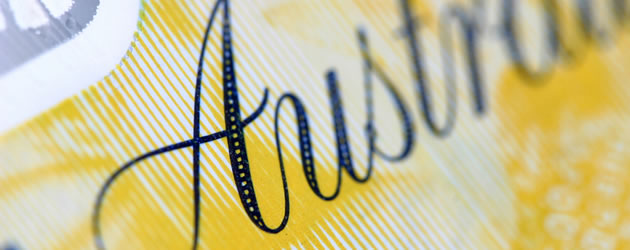EUR/AUD Conversion Rate Predicted to Hold Gains despite Weak German Producer Prices Data
The Euro to Australian Dollar (EUR/AUD) exchange rate advanced by around 0.7% on Wednesday afternoon.
Despite the fact that December’s German Producer Prices contracted beyond expectations on both a monthly and an annual basis, the single currency advanced versus the majority of its most traded rivals today. Only the Japanese Yen is holding gains over the common currency thanks to heightened demand for safe-haven assets and positive Japanese Convenience Store Sales in December. The Euro’s resilience can be linked to investors seeking carry trades as they take advantage of the European Central Bank’s (ECB) accommodative monetary policy.
Also aiding the Euro appreciation today is speculation that the ECB will avoid extending stimulus measures during the policy meeting scheduled for tomorrow afternoon. Additional gains can be linked to a report from the International Monetary Fund (IMF) which suggested that European Union nations will get an economic boost from the influx of refugees. ‘Quick labour market integration can unlock the potential economic benefits of the refugee inflow,’ the authors say in the report. ‘Granting asylum-seekers early access to the private and public sector labour market and self-employment is a key prerequisite for their speedy integration in the workforce.’
The Euro to Australian Dollar (EUR/AUD) exchange rate is currently trending in the region of 1.5893.
AUD/EUR Conversion Rate Predicted to Hold Losses after Chinese Foreign Direct Investment Unexpectedly Contracted
In response to disappointing data out of China, the Australian Dollar dived versus its major peers. December’s Chinese Foreign Direct Investment unexpectedly contracted by -5.8%, missing the median market forecast 3.1% growth. This caused the Shanghai Composite Index to end the Asian session over 1% down. ‘Greater appetite for mature assets and better awareness of political and commercial risks in emerging economies have further accelerated the shift of investment activity from developing to advanced economies,’ Rhodium Group analysts Thilo Hanemann and Cassie Gao wrote in a report this month.
Also adding to dampening demand for the ‘Aussie’ (AUD) was January’s Westpac Consumer Confidence which contracted by -3.5%, causing the index to drop from 100.8 to 97.3. ‘Over the two weeks to the end of the survey, the oil price has fallen by 20 per cent,’ said Westpac chief economist Bill Evans. ‘Over the same period, the Australian share market has fallen by 7.6 per cent and the US market by eight per cent. Not surprisingly, these concerns have weighed most heavily on how respondents assess their own financial position.’
The Euro to Australian Dollar (EUR/AUD) exchange rate dropped to a low of 1.5782 during Wednesday’s European session.
Euro to Australian Dollar (EUR/AUD)) Exchange Rate Forecast: ECB Rate Decision in Focus
There will be a number of ecostats on Thursday with the potential to provoke significant EUR/AUD exchange rate volatility. In terms of Australian data, January’s Consumer Inflation Expectation and November’s HIA New Home Sales will be most likely to provoke ‘Aussie’ changes.
However, market focus is likely to be dominated by the ECB interest rate decision on Thursday afternoon. Whilst many economists don’t expect officials to shift on policy outlook at this time, there is a very real chance that the central bank will pave the way for additional stimulus measures. Eurozone Consumer Confidence data will also be of interest to those invested in the common currency.
The Euro to Australian Dollar (EUR/AUD) exchange rate climbed to a high of 1.6053 during Wednesday’s European session.



